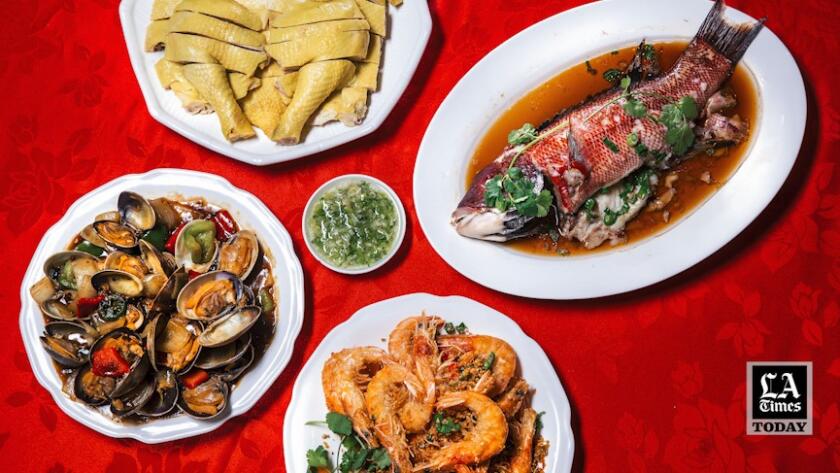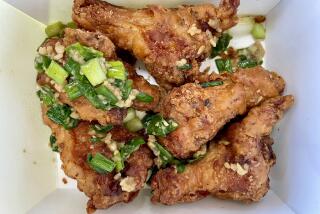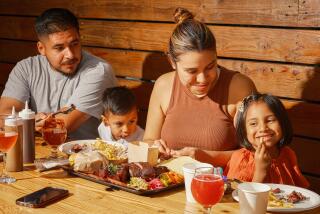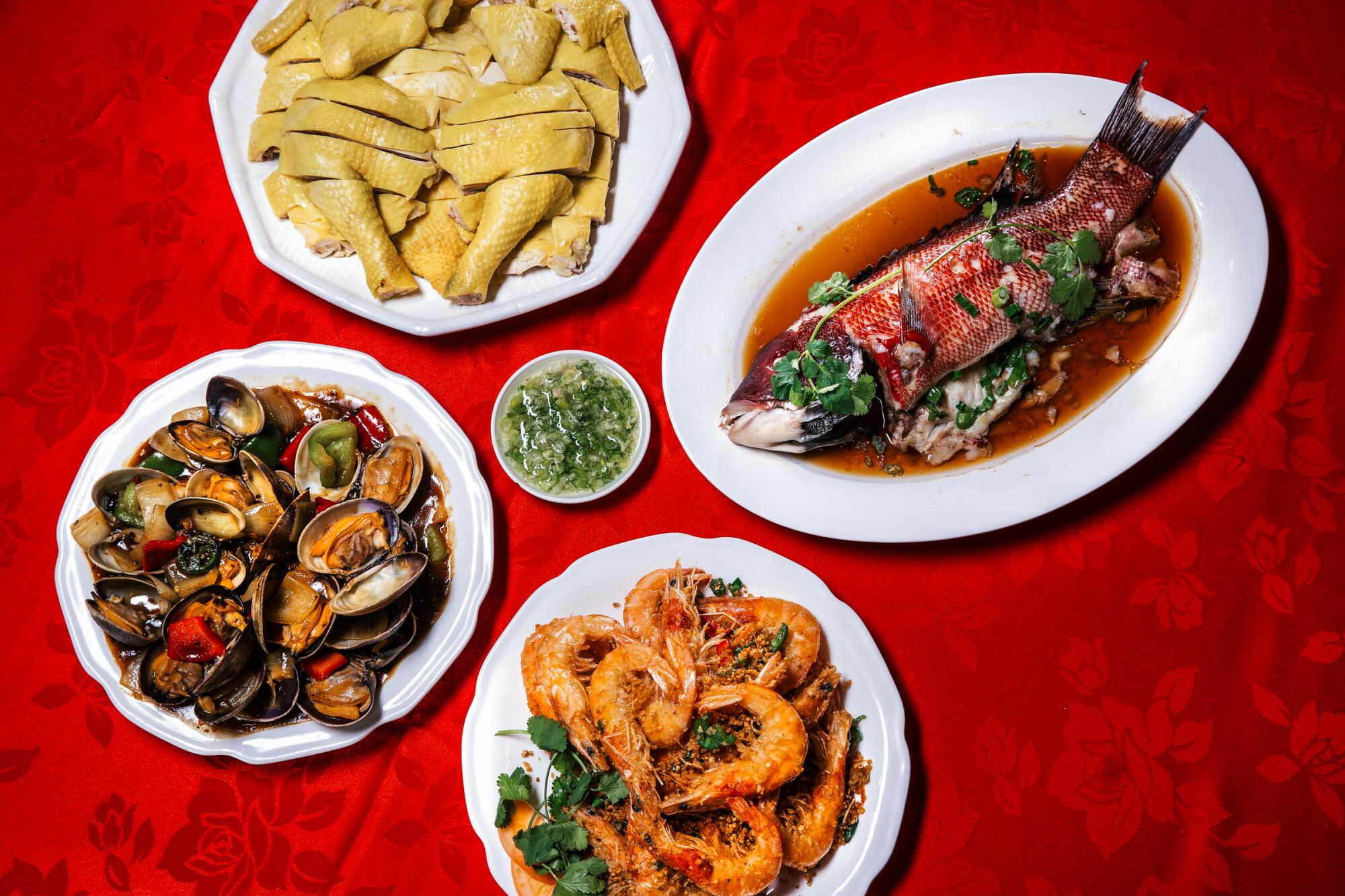
Donât go to bed with your hair wet or even remotely damp. Youâll get headaches. Donât put your chopsticks straight up in your rice. It resembles the incense burned at funerals. Eat lots of greens. They are the color of money.
Iâve grown up fiercely observing the symbols and superstitions of my Chinese mother and grandmother. And never so fervently as during the Lunar New Year celebration. Specific foods hold meaning and even power depending on who you ask. This can be due to a food or dishâs shape, name, pronunciation, history and, in some cases, the traditions of individual families.
From gyoza to ravioli to mandu, Jenn Harris explores different dumplings and the stories behind them.
âThere is so much thought that has gone into what you eat,â cookbook author and Chinatown advocate Grace Young said during a recent call. âAnd the Chinese really believe how you conduct yourself in the first two weeks of the year can completely influence the outcome of your year. And they are so sure that eating specific foods will change that outcome.â
Like many Chinese families, Young celebrates with a dinner on the eve of the Lunar New Year, which starts today . Itâs a celebratory meal filled with foods meant to bring good fortune and health for all those who partake, usually a medley of eight to nine items, but never four.
âThe word for the number four in Cantonese sounds like death,â Young said.
Some of Youngâs favorites include a whole chicken to symbolize a new, proper beginning; clams or scallops because the shapes are similar to coins, which represent wealth and prosperity; roast pig, which symbolizes purification and peace; and a whole fish because the word for fish sounds like the word for âabundance,â and means you will have plenty in the coming year.
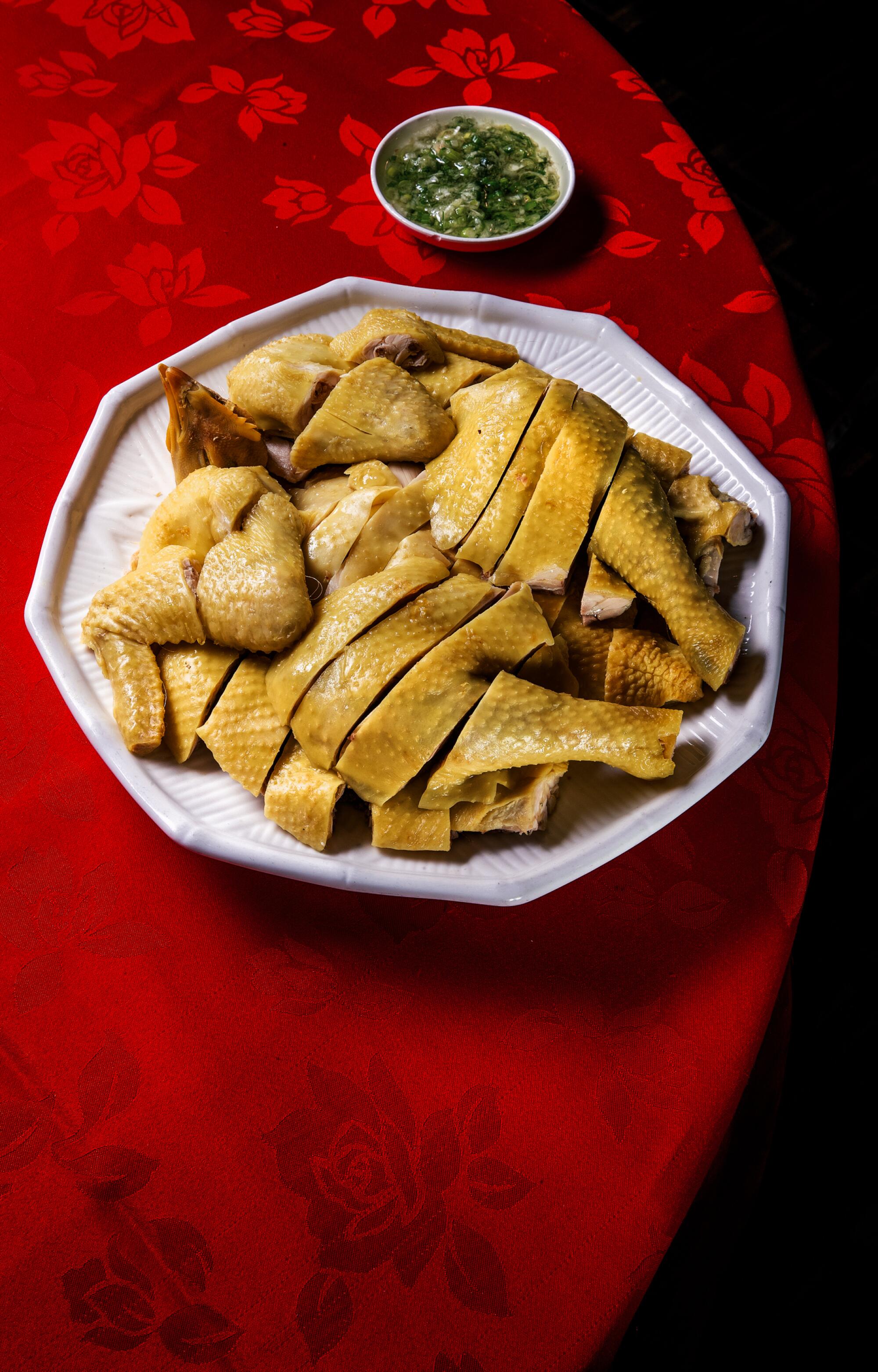
She also explained the symbolism behind some other popular Lunar New Year foods, including oysters (the word is a homonym for the word for âgood thingsâ); mushrooms (symbols for growing fortunes); cilantro (represents compassion); Napa cabbage (the word sounds like â100 wealthâ and represents prosperity); rice (a symbol of well-being and prosperity); shrimp (the word for it in Cantonese sounds like âha,â laughter); egg rolls (they look like ancient Chinese coins); lo bak go (the word âgoâ means rising and symbolizes rising fortunes); sesame balls (the shape symbolizes the wholeness of life); longevity noodles (for long life); and jiaozi (round dumplings that resemble ancient coins and symbolize wealth and prosperity).
This year, Young will aim to source all her Lunar New Year dishes from restaurants in New Yorkâs Chinatown, but she says she hopes people will support any independent Asian-owned businesses in Chinatowns, Koreatowns and various Asian neighborhoods around the country. She recently started a campaign with the James Beard Foundation called #SupportChinatowns, encouraging people to share their support of these businesses on social media.
Iâll be heading to the San Gabriel Valley to pick up dishes for my familyâs celebration. Here are three of our favorites.
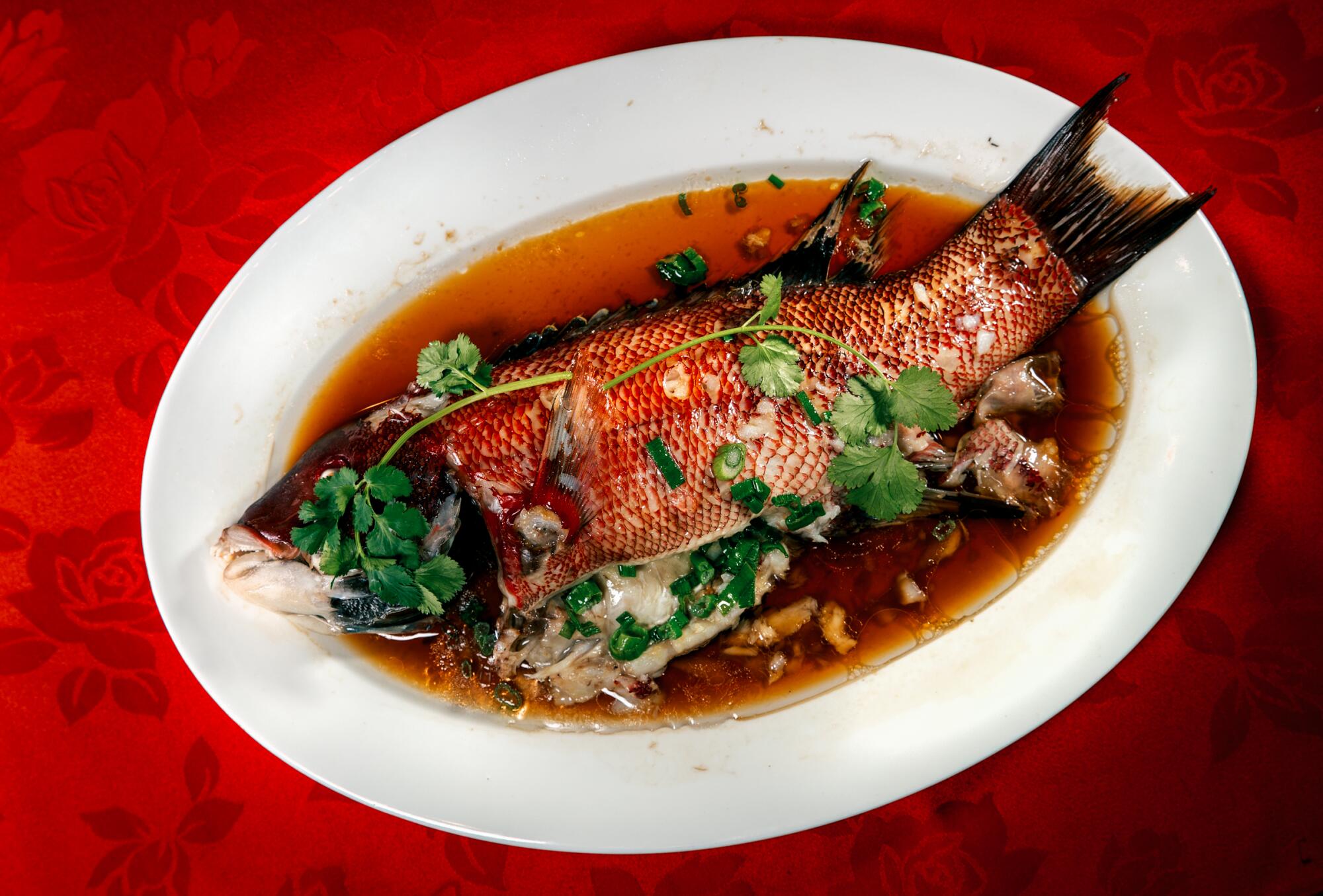
Whole steamed fish from Taste of MP
There is no shortage of restaurants serving whole steamed fish. Jiang Nan Spring and Newport Seafood both serve excellent versions. But the place my family returns to year after year is the recently renamed Taste of MP (previously New Lucky Seafood). The fish here is steamed perfectly, every time. It offers both sea bass and tilapia, steamed whole in either a black bean sauce or in a puddle of soy and hot oil under a mess of scallions. We opt for the latter, the best way to appreciate the essence of the sea in the fish. Everyone excavates for meat until the bones are clean, then we spoon the leftover sauce onto bowls of rice, or slurp it straight from the plate.
âThe fish is one of the most important,â my grandmother Tina Wong says. âEvery year, you get rich from the fish.â
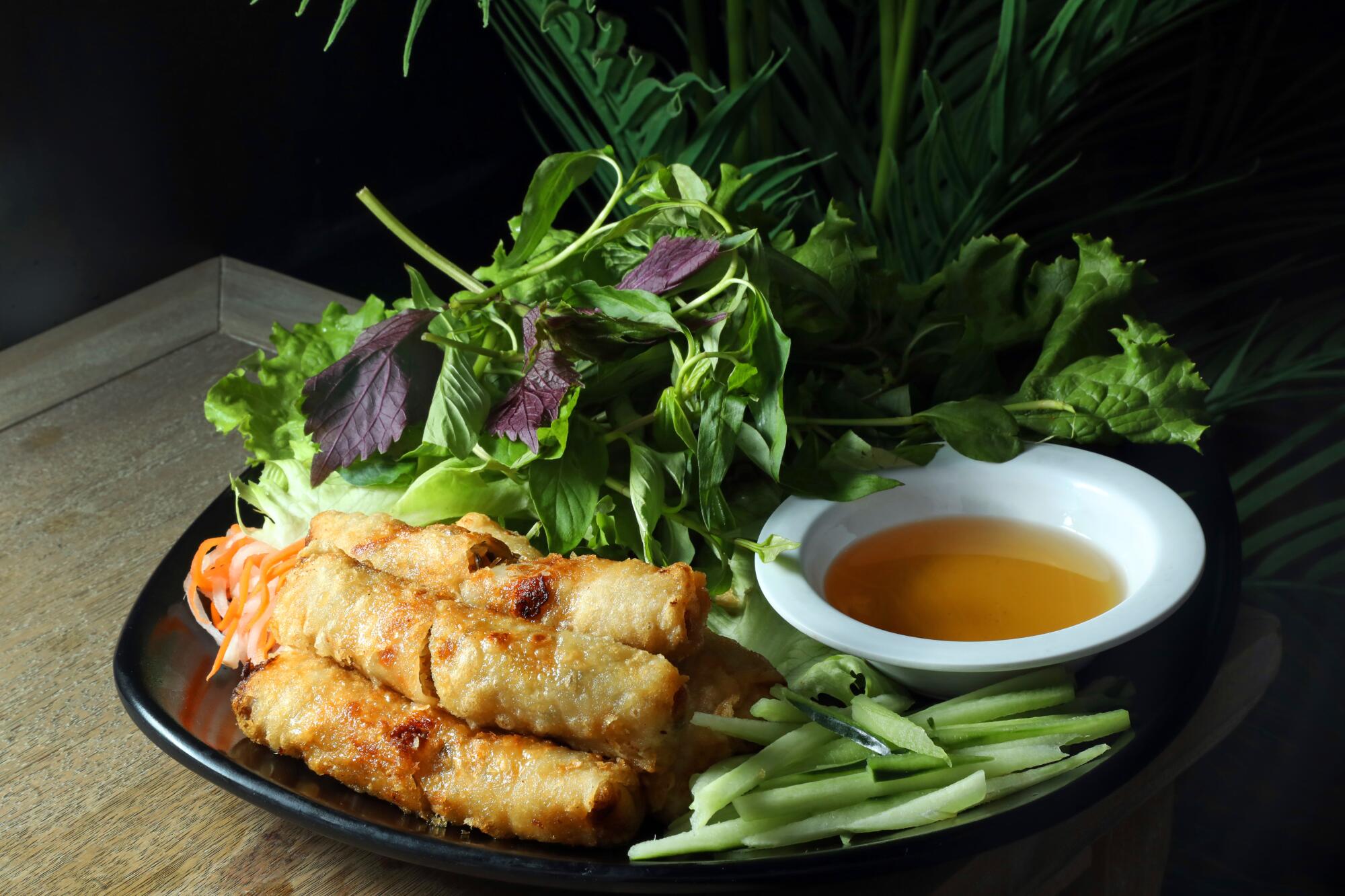
Fried spring rolls from King Com Tam
We like to get our fried spring rolls from various Vietnamese restaurants in the San Gabriel Valley. Our current favorites are at King Com Tam, the restaurant around the corner from the Hawaii Supermarket in San Gabriel. The rolls, labeled âegg rollsâ on the menu, are golden cigars filled with minced cabbage, carrots, mushroom, ground pork and broken vermicelli noodles. The wrappers are brittle and bubbly, shattering on contact, with an ethereal crunch. Itâs easy to imagine them resembling a form of valuable currency.
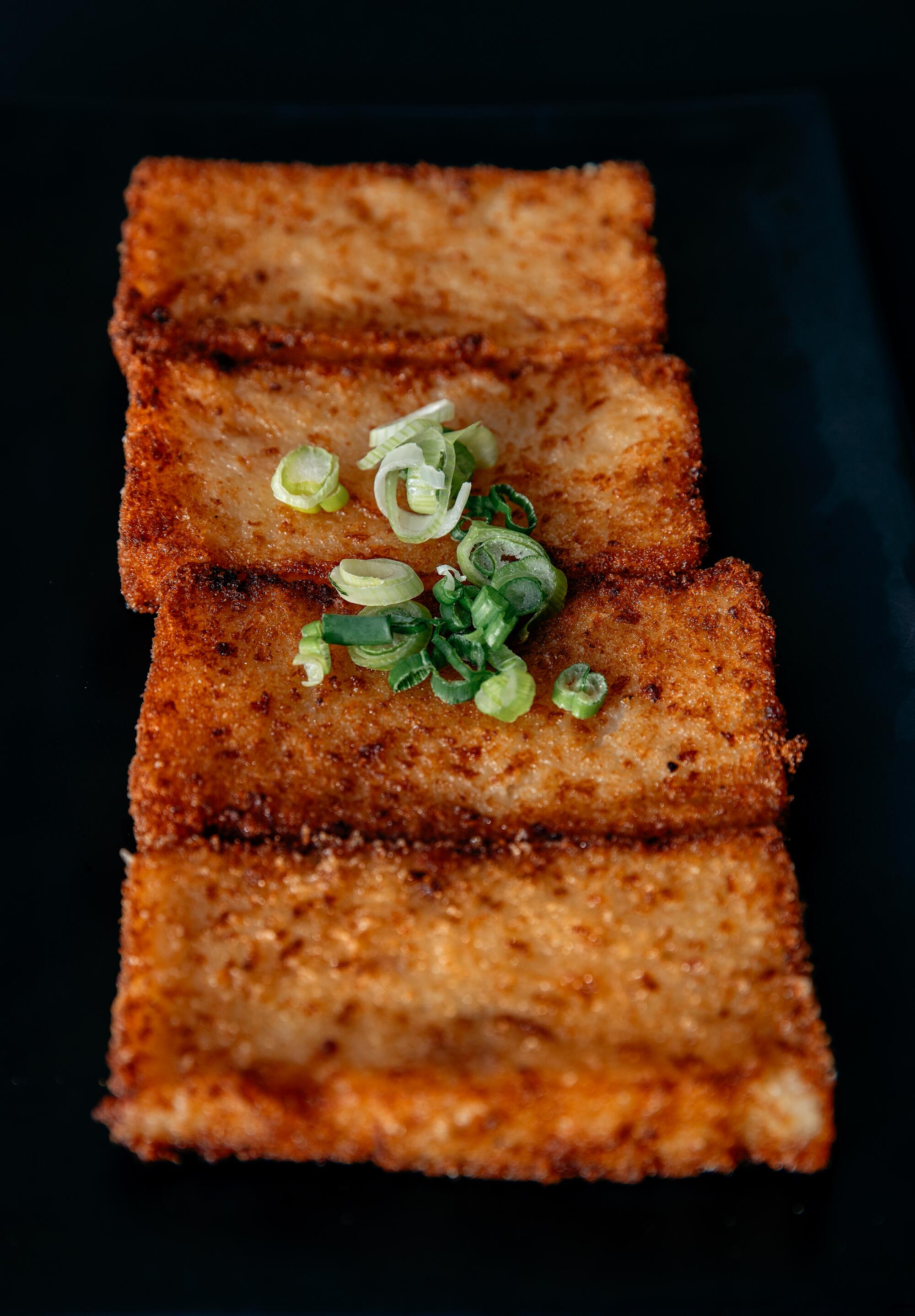
Lo bak go from Yi Mei Deli
At Yi Mei Deli in San Gabriel, they are listed on the menu as âdaikon cakes.â At most dim sum houses, the cakes are pan-fried until the tops and bottoms are speckled with brown bits that crisp up in the pan. At Yi Mei, the petite rectangles resemble hash browns, perfectly golden and crispy on all six sides. When the rice flour and radish dough cooks, it creates a sort of crust, but the middle remains soft and almost gooey, studded with minced lap cheong and strands of shredded radish. The cakes are garnished with chopped green onion, and the smell emanating from the box is uncannily similar to sour cream and onion potato chips.
âWhen you eat lo bak go, everything goes up and up and up,â says Grandma.
Sheâs always right.
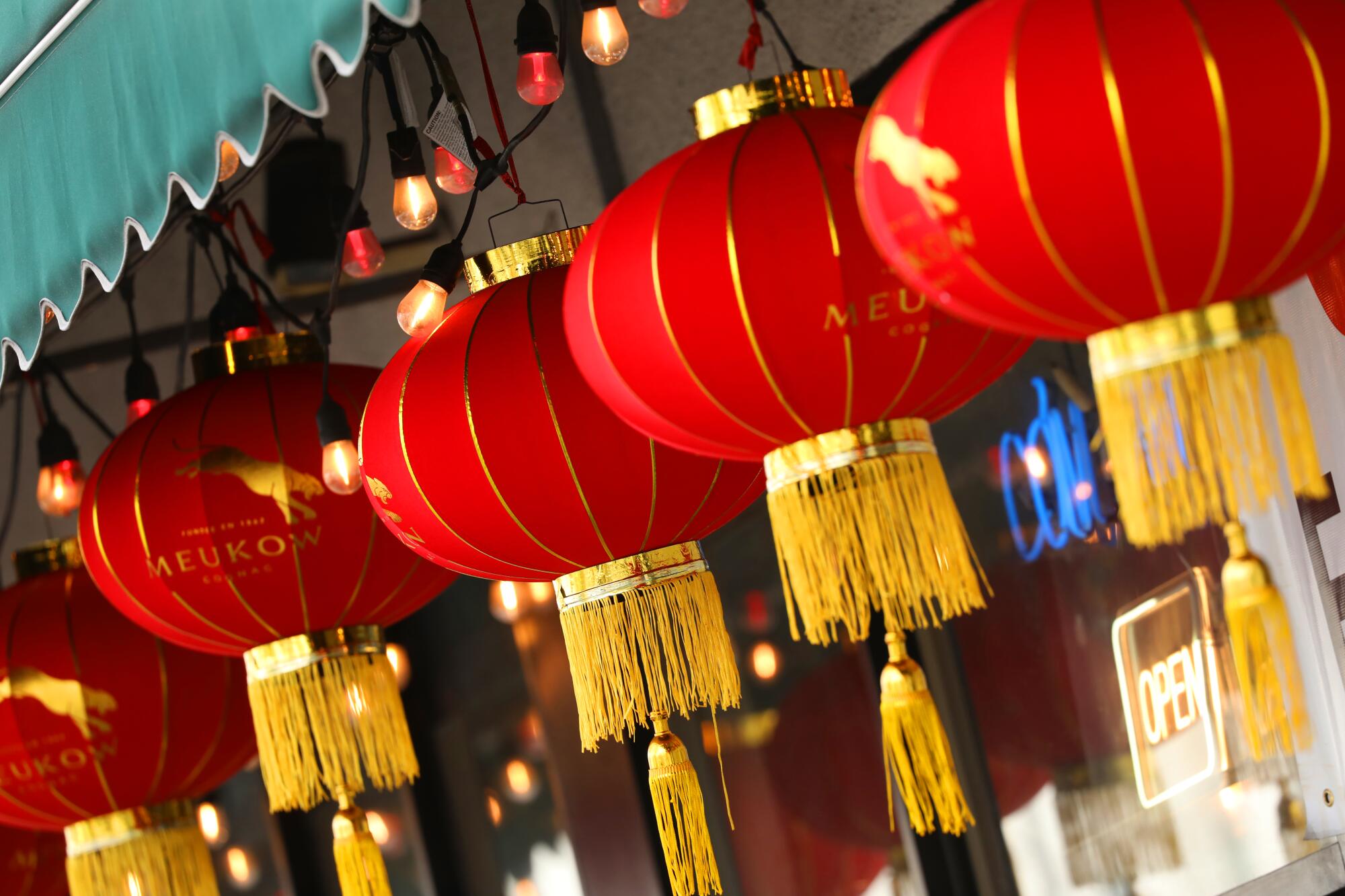
Watch L.A. Times Today at 7 p.m. on Spectrum News 1 on Channel 1 or live stream on the Spectrum News App. Palos Verdes Peninsula and Orange County viewers can watch on Cox Systems on channel 99.
What to eat now
Taste of MP, 415 W. Garvey Ave., Monterey Park, (626) 307-7338
King Com Tam, 120 E. Valley Blvd., Suite I & J, San Gabriel, (626) 280-5660
Yi Mei Deli, 416 E. Las Tunas Drive, # A, San Gabriel, (626) 344-9131, yimeideli.com
More to Read
Eat your way across L.A.
Get our weekly Tasting Notes newsletter for reviews, news and more.
You may occasionally receive promotional content from the Los Angeles Times.

